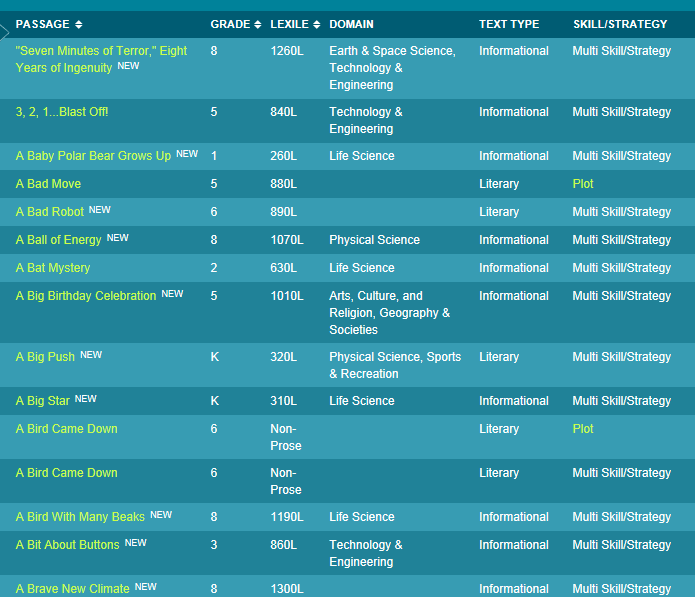Close Reading Without Reinventing the Wheel
By Jamie Guillaume
Close reading has been a topic of discussion in both the
elementary and Jr.-Sr. high schools recently. It
is a skill that can be practiced and used in text of all subject matters. The Common
Core’s focus on students gathering evidence, knowledge, and insight from what
they read across the curriculum has reinforced the importance of this skill.
Sometimes the hardest part about teaching close reading is
finding quality, complex texts to read, re-read, think about, and respond to in
writing and in conversation.
Last week I had the opportunity to attend a workshop that
outlined the big picture of close reading and gave tips and suggestions for
passage selections as well as accompanying questions to develop and practice this
skill. The presenter, Shauna Findlay,
recommended a site that I have used in the past, readworks.org, which
reaffirmed its usefulness. This site has
quality lesson plans organized by Skill & Strategy, Comprehension, Novel
Study and Reading Passages.
The graphic below was pulled from readworks.org. As you can see there are a variety of
passages organized by grade, Lexile, domain (subject), text type and strategy.
The below screen shot is an example of one of the many
available lessons. Once downloaded, you
have access to all of the documents needed for the lesson described. There
are multiple close reading lessons geared towards all grade levels available.
Although the above sites give passages designed to foster close reading, many teachers have passages they are familiar with and prefer to use. Below are tips for questions and discussions that can be used to promote close reading lessons.
Although the above sites give passages designed to foster close reading, many teachers have passages they are familiar with and prefer to use. Below are tips for questions and discussions that can be used to promote close reading lessons.
Questions
and Discussions:
- Can only be answered with evidence from the text
- Can be literal, an understanding check, but must also involve analysis, synthesis, and/or evaluation
- Focus on a word, sentence, and/or a paragraph, as well as larger ideas, themes or events.
- Focus on difficult portions of text in order to enhance reading proficiency.
- Can also include prompts for writing and discussion questions.


No comments:
Post a Comment